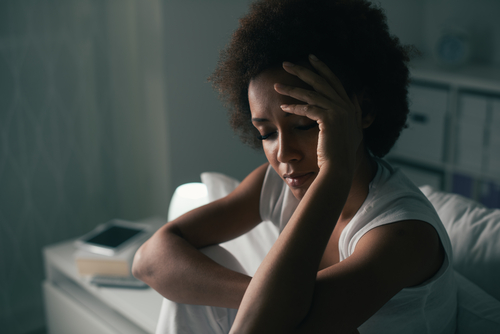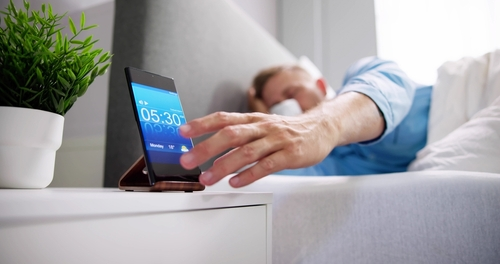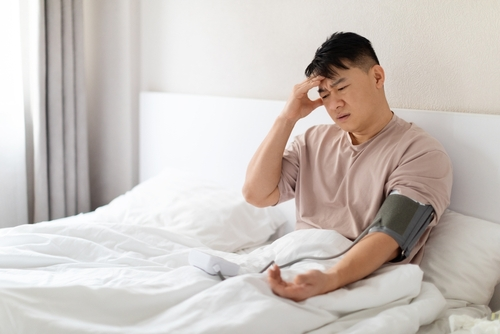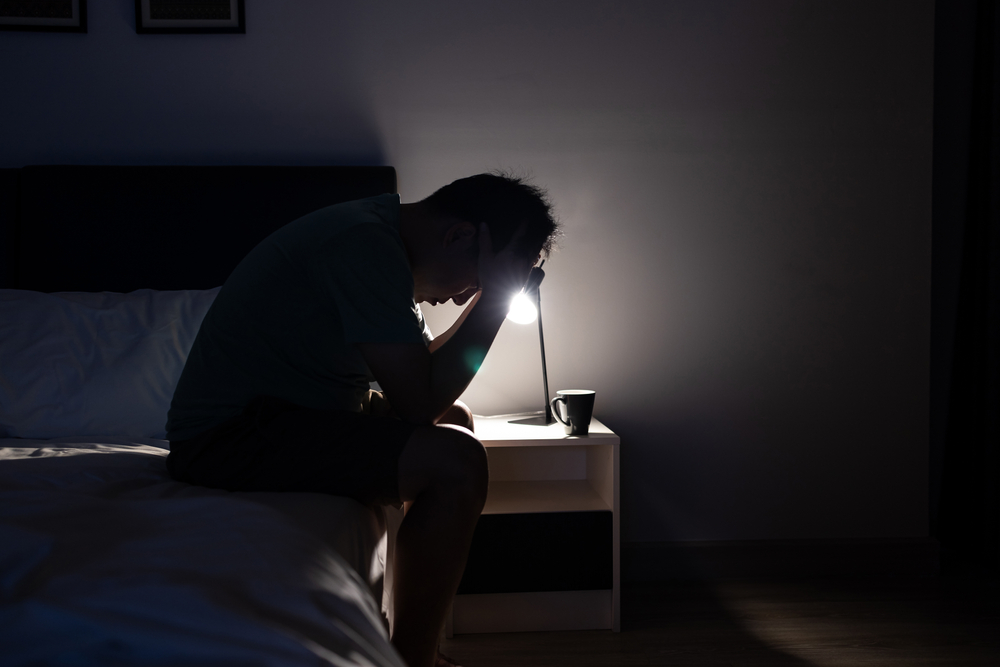Alcohol abuse and addiction are major problems in the US. The stats are staggering, with over 3 million Americans dying from alcohol yearly.
With excessive alcohol consumption and dependency comes severe health issues like insomnia during withdrawal. If you or someone you know is struggling with an alcohol use disorder, the inability to sleep can be one of the first signs of withdrawal during detox.
The body becomes dependent on the depressant effects of alcohol to fall asleep. Without it, the nervous system becomes overactive, causing restlessness, anxiety, and disrupted sleep. Insomnia, nightmares, and sweating are common during alcohol detox and early sobriety.

Understanding Alcohol Withdrawal Insomnia
Withdrawal from alcohol can be quite challenging. Understanding the reasons behind it can help you manage it better. When someone heavily depends on alcohol, their body becomes accustomed to its presence. It starts relying on it to function. So when you abruptly stop consuming alcohol, your body goes into overdrive to find balance.
This disruption in your body’s functioning often leads to insomnia and restlessness. As the alcohol gradually leaves your system, your brain needs time to readjust and function without its influence. This adjustment process can trigger feelings of anxiety, irritability, and restlessness that make falling asleep difficult.
You might find yourself experiencing a racing mind and mood swings during this phase. Engaging in breathing exercises, meditation, or light physical activity can help alleviate anxiety and promote sleep quality. Prolonged use of alcohol also disrupts your sleep-wake cycle, known as the rhythm.
It might take days or even weeks of sobriety for your sleep-wake cycle to reset itself completely. Remember that the insomnia associated with alcohol withdrawal is temporary. Keep focusing on the aspects of sobriety and stay committed to it. With time, your body and mind will heal, allowing you to enjoy sleep again.

How To Treat Alcohol Withdrawal Insomnia
Now that you have sought professional help for your alcohol withdrawal insomnia, you are on the path to recovery. One key thing to remember during your healing journey is it takes time and dedication, but you can overcome the challenges ahead with the right support and resources.
After completing a medically supervised alcohol detox program, you may wonder what comes next. Ongoing treatment and support are vital for maintaining your sobriety in the long term. Consider incorporating the following elements into your recovery plan:
- Set a Precise Bedtime: Sticking to a regular sleep schedule is key. Go to bed and wake up simultaneously every day, even on weekends. This helps establish your body’s circadian rhythm and optimize your sleep.
- Be Wary of Mid-Day Caffeine: Caffeine’s effects can last up to 6 hours. Avoid coffee, tea, and soda in the afternoon and evening so the caffeine doesn’t disrupt your sleep later.
- Avoid Daytime Naps: While napping may seem appealing when you’re tired, it can interfere with nighttime sleep. Limit naps to 30 minutes and avoid them after mid-afternoon.
- Create Comfort Rituals: A calming pre-bed routine can help you relax. Take a warm bath, read a book, listen to soft music, stretch, or do light yoga. Keep the lights dim and avoid screens and bright lights, which inhibit melatonin production.
- Counseling and Therapy:Counseling or therapy sessions can provide valuable tools and strategies to address the underlying causes of your alcohol use and insomnia.
- Support Groups: Connecting with others who have experienced similar struggles can be immensely helpful.
It will take time and practice, so be patient and gentle with yourself during the process. If problems continue for over a week, talk to your doctor about possible treatments or therapies that could help improve your sleep.

Seeking Medical Help for Severe Alcohol Withdrawal Insomnia
If you’re suffering from severe alcohol withdrawal insomnia, it’s critical to seek professional medical help right away. Your health and safety should be a top priority during this difficult time.
A medically supervised alcohol detox program can help you safely withdraw from alcohol. Doctors and nurses closely monitor your symptoms and vital signs and provide medication as needed to manage severe withdrawal symptoms. This helps treat potentially life-threatening conditions like delirium tremens (DTs) properly.
- Around-the-clock medical care. Your vitals and symptoms are monitored 24/7 by medical staff during detox.
- Medication as needed. Medications like benzodiazepines may treat severe withdrawal symptoms like insomnia, anxiety, and seizures.
- A comfortable environment. Most detox facilities offer a home-like environment to rest comfortably during your stay.
Take The First Step With MD Home Detox
Following detox, ongoing treatment like counseling, therapy, support groups, and medication is often recommended to help maintain your sobriety in the long run. Making healthy lifestyle changes and learning coping strategies can help you avoid relapse. Your medical team can help connect you with resources to support your recovery after detox.
The most important first step is admitting you need help and seeking medical care immediately. Your health and sobriety should be your top priority. People are here to help you through this difficult time, so don’t lose hope! Contact MD Home Detox. You deserve to live a happy, healthy life free from addiction.

